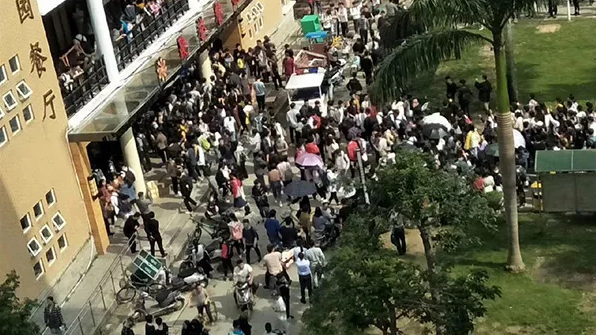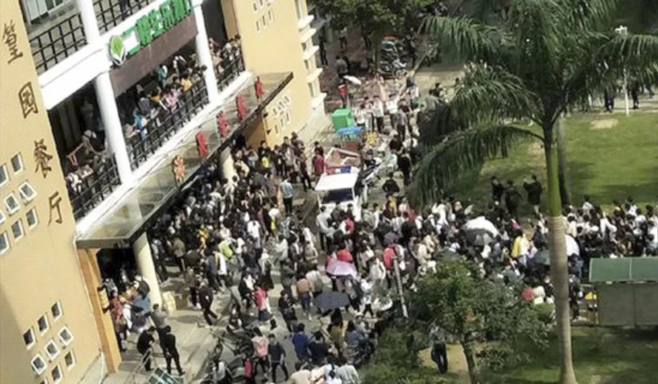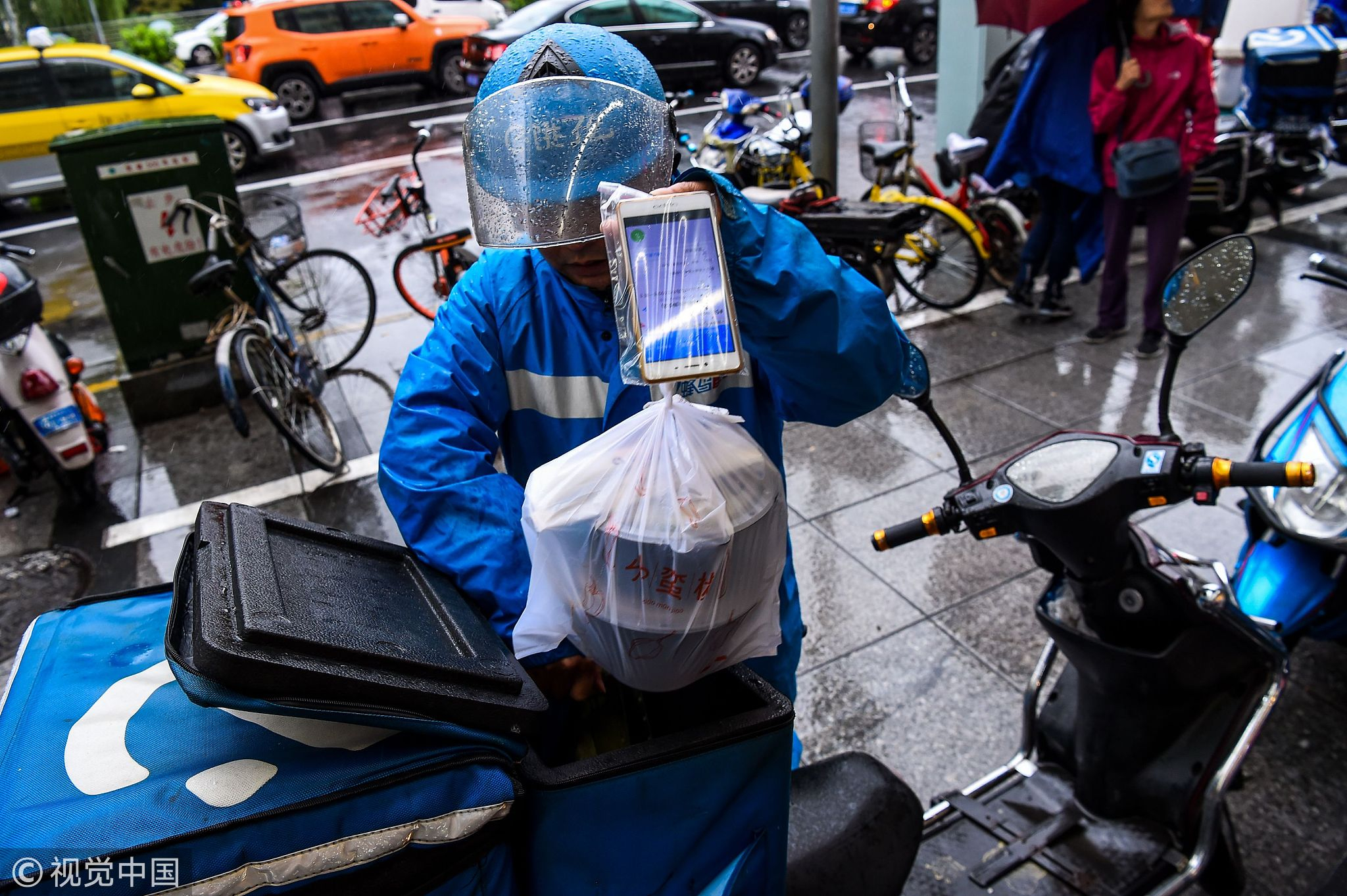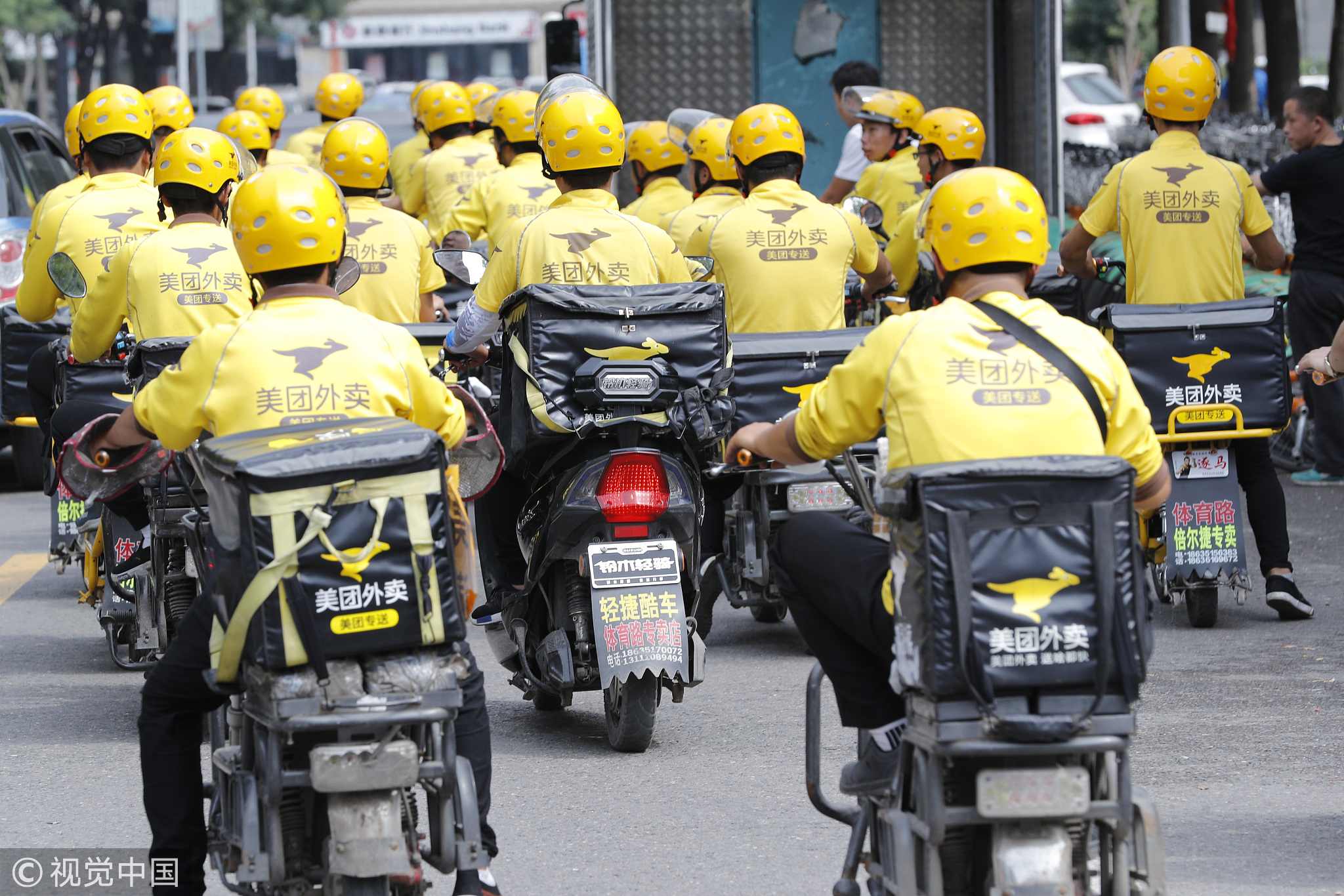
China
19:56, 14-Nov-2018
Safety and health concerns prompt Chinese university to ban food deliveries
Updated
19:02, 17-Nov-2018
CGTN

A university in Fuzhou City, southeast China's Fujian Province has sparked an uproar after it issued a ban on the entry of outside food deliveries in the campus.
Several restaurants distributed free food to hundreds of students in front of a campus cafe in a protest against the rule which has been introduced to clamp down on trash, traffic, and unhealthy diet.
The announcement was made in a statement posted on the Minjiang University's official Weibo handle on November 12.

Students at the Minjiang University gathered in front of a campus cafe to claim free meals. /Screenshot via Weibo
Students at the Minjiang University gathered in front of a campus cafe to claim free meals. /Screenshot via Weibo
The ban has triggered a massive online backlash from the students and resulted in a flood of complaints on the university's Weibo page. However, the campus authorities have defended the move claiming that it aims to cut down on disposable plastic bags and boxes used to wrap and deliver food.
The university management also insists that the decision addresses the safety hazards caused by fast-moving delivery vehicles like electric bikes and motorcycles, and control unhealthy diet habits among students.

Plastic bags and containers are commonly used in food delivery services across China. /VCG Photo
Plastic bags and containers are commonly used in food delivery services across China. /VCG Photo
However, the university has promised to set up designated areas where students will be allowed to collect outside food deliveries. In order to attract students to eat campus meals, the authorities have also decided to extend service hours and lower prices at inhouse canteens.

Meituan Dianping, a prominent on-demand food delivery platform in China, is known by the yellow color uniform worn by its delivery men. /VCG Photo
Meituan Dianping, a prominent on-demand food delivery platform in China, is known by the yellow color uniform worn by its delivery men. /VCG Photo
Several other universities across China have taken measures to reduce food delivery vehicles inside the campus.
The delivery boom, powered by an estimated three million couriers, who mostly ride silent electric scooters or boxy three-wheelers, has triggered a surge in road accidents, prompting warnings from police and complaints from drivers who say they feel pressured to put speed before safety, according to an AFP report.

SITEMAP
Copyright © 2018 CGTN. Beijing ICP prepared NO.16065310-3
Copyright © 2018 CGTN. Beijing ICP prepared NO.16065310-3